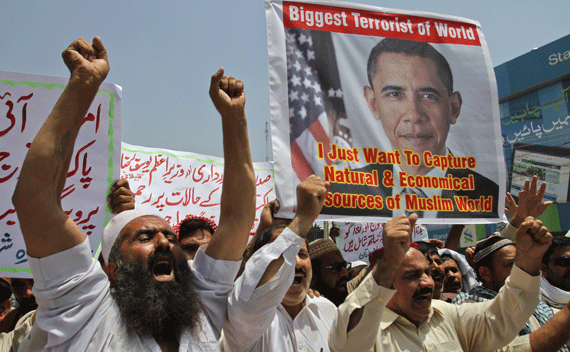Guest Post: A Looming Breakdown in U.S.-Pakistan Relations?
More on:

My colleague, Dan Markey, has been in Islamabad for the past week doing book research. Here’s his assessment of the mood in Pakistan and what it means for U.S.-Pakistani relations. He is not encouraging. After reading Dan’s piece, you should read Lawrence Wright’s recent New Yorker article, “The Double Game.” It’s a damning indictment of U.S. aid for Pakistan and of Washington’s unwillingness to see Islamabad as it is.
I depart Pakistan deeply uncertain about the direction it is likely to take. This country feels on edge, and I am leaving sooner than I had planned. Perhaps an abundance of caution, but it feels like the smart thing to do.
Bin Laden’s death and the U.S. raid in Abbottabad have raised fundamental questions about the role of Pakistan’s army and ISI--traditionally the dominant institutions in the state. Over the past two weeks, public debate about the military has been more open and introspective than Pakistan has seen in decades. Comparisons are routinely made with 1971, when Pakistan suffered a humiliating defeat in war with India and a popular civilian leader--Zulfikar Ali Bhutto--asserted himself over the generals.
Some Pakistanis expect that now may be another opportunity for political change. That said, I haven’t found many who anticipate that the current crop of civilian politicians will manage to assert themselves over the military and intelligence apparatus. True, the army chief and the country’s top spy submitted themselves to an exhausting eleven hours--yes, eleven--of closed-door parliamentary debate. This was an unprecedented event in Pakistani history, and it signaled the depth of public concern and the army’s sense of humiliation. (As a sign of the gulf in public perceptions between Pakistanis and Americans, I should note that most of this debate focused on the U.S. attack on Abbottabad, not the fact of bin Laden’s presence there.)
But the present government is weak, dependent upon a coalition that needs the army’s backing to survive. Opposition leaders are widely, if not uniformly, perceived as more opportunistic than principled. There is no unifying charismatic leader with the capacity to seize the initiative.
And in recent days, the military and intelligence communities have been busy circling their wagons against all challengers, including the United States. There have been small manufactured demonstrations in Islamabad in support of the army and intelligence services. The local business association was directed to hoist banners around town proclaiming that now is the time for unity in support of the ISI, that only traitors would do otherwise.
It looks like the Pakistani army’s sense of humiliation has quickly turned into a defensiveness and anger that won’t soon encourage constructive diplomacy. Commentators around town routinely depicted the military as a wounded animal, more than likely to lash out at any hand extended by the United States.
The question on my mind as I depart is whether Pakistan’s intelligence failure offers Washington real leverage to press for constructive changes in the way the ISI operates--whether it takes seriously the threats posed by the entire array of extremist groups operating from Pakistani soil--or if it will mark the beginning of an irreversible breakdown in U.S.-Pakistan cooperation. Even the best possible outcome from this crisis will be bruising, messy, and quite possibly very violent. In a worst case scenario, the diplomatic dispute could undermine confidence in Pakistan’s already weak economy, destabilize its civilian government, and push the country into greater turmoil or even another bout of military authoritarianism.
The prospect of such unwelcome developments should not, however, deter the United States from demanding change. While risky, this may be Washington’s best chance for some time to come.
So what would you have the Obama administration do?
More on:
 Online Store
Online Store
